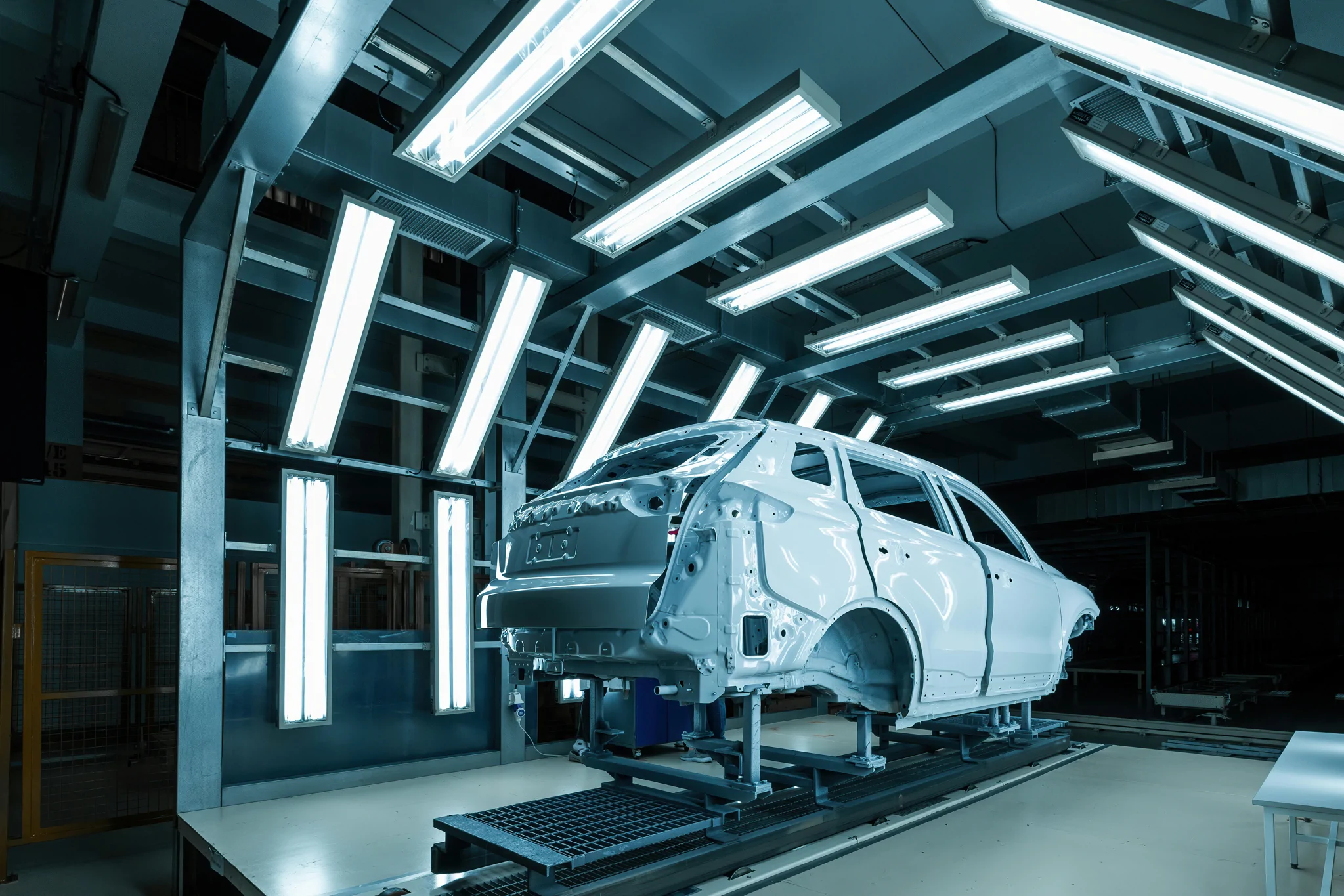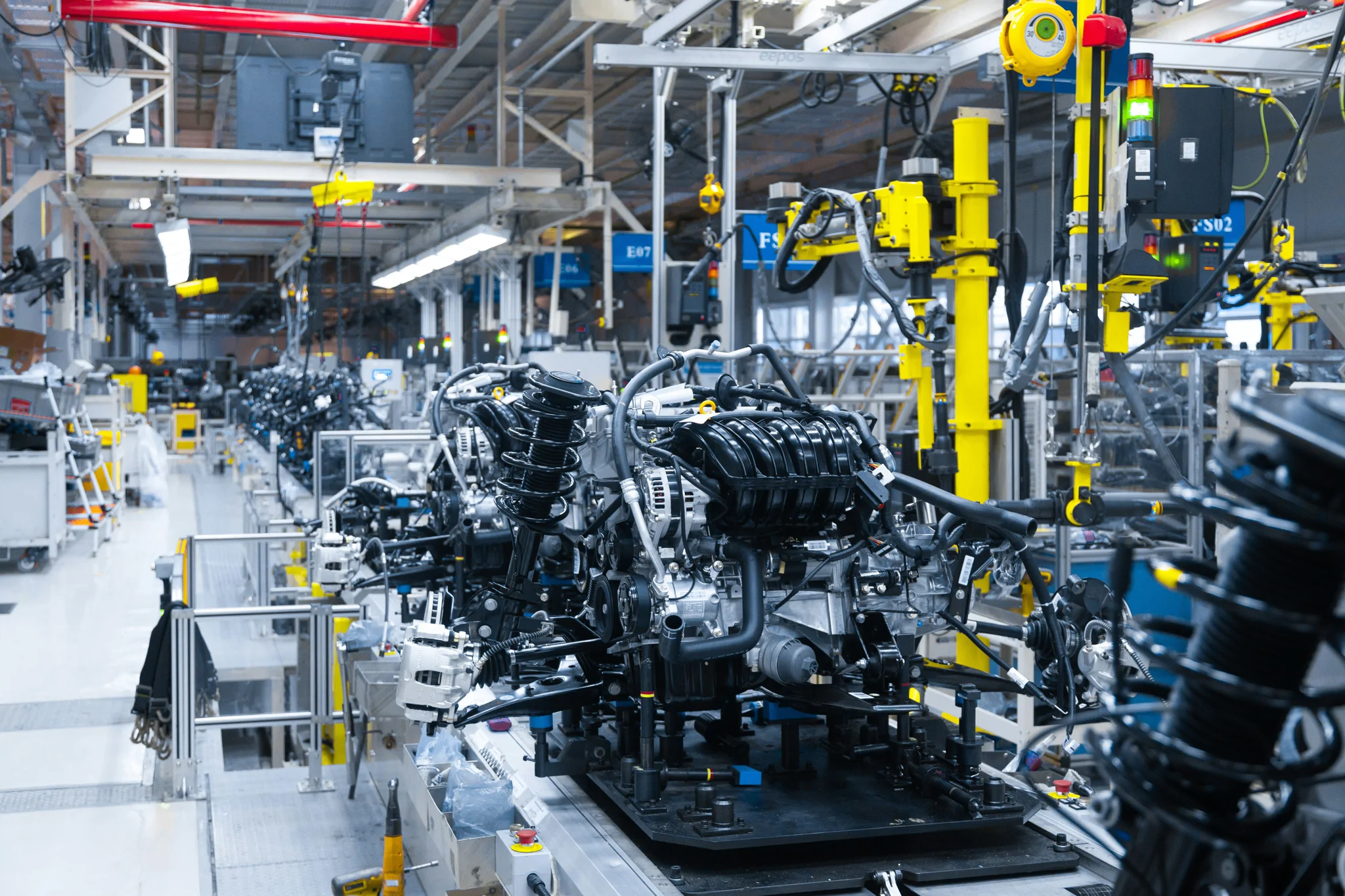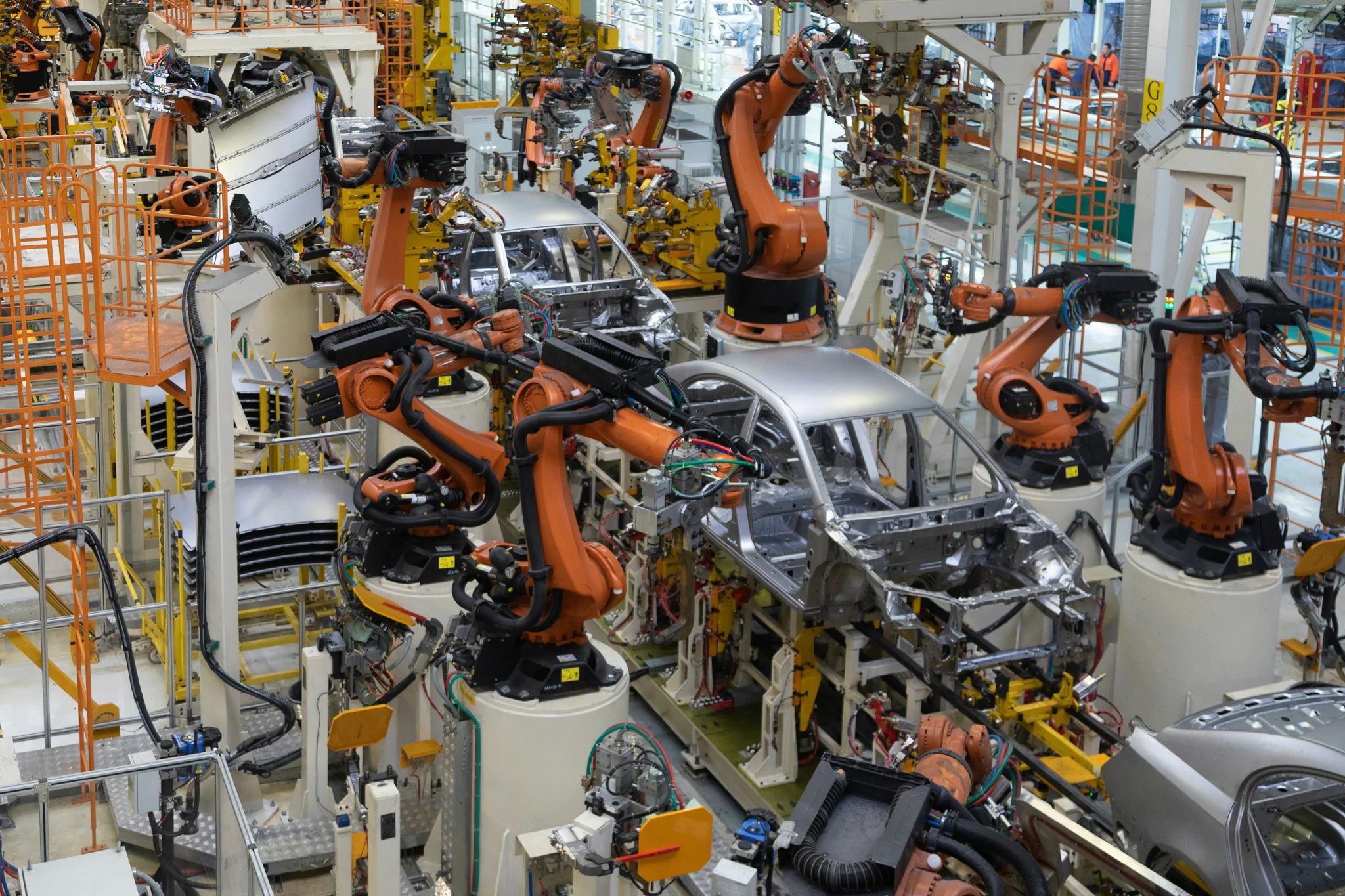Drop off your CV
We'd love to hear from you. Send us your CV and one of our specialist consultants will be in touch.
Global Automotive Headquarters: Detroit is recognized as the global automotive capital. It houses major automakers like General Motors, Ford Motor Company, and Stellantis, which contribute significantly to Michigan's economy.
Extensive Supply Chain: Michigan boasts the world's densest automotive and mobility supply chain, with 26 original equipment manufacturers (OEMs) having headquarters or technology centers in the state.
Economic Impact: The automotive and mobility industry contributes approximately $304 billion to Michigan's economy annually, making it a critical sector for the state's financial health.

Dominance of Suppliers: 98 of the top 100 automotive suppliers in North America are present in Michigan, with 65 of them headquartered in the state, further solidifying its supplier network.
Employment Hub: The industry provides 1.1 million jobs, representing 20% of Michigan's workforce, making it the top state for automotive manufacturing jobs—six times higher than the national average.
Leading Exporter: Michigan is the #1 exporter of transportation equipment in the U.S., emphasizing its importance in global trade.
Highly Skilled Workforce: The state features a highly skilled workforce, ranking #1 in the concentration of mechanical engineers (31,950), industrial engineers (26,410), and tool and die makers (9,610), all significantly above the national average.

Commitment to Innovation: Michigan's manufacturing heritage supports a culture of innovation, positioning the state as a leader in next-generation transportation and manufacturing.
Investment in R&D: Michigan is first in mobility and automotive research and development (R&D), with 62% of total U.S. spending in this area taking place within the state.
Infrastructure for Autonomous Vehicles: The state has the most extensive network of autonomous vehicle and mobility testing infrastructure, alongside the nation's most favorable laws for testing self-driving vehicles.

Here are some examples of the diverse range of senior roles within the industry:
Account and Client Relationship Management: Experience in managing existing accounts, building relationships with senior retailer management, and identifying opportunities to grow account volume and value.
Automotive Market and Product Knowledge: Strong understanding of the automotive industry, including luxury or heavy vehicle sales experience, aftermarket products, and familiarity with automotive KPIs and market analysis.
Sales Strategy and Target Achievement: Ability to set and achieve sales targets, develop effective sales strategies, and analyze sales figures to drive growth and meet corporate objectives.
CRM System Utilisation: Skilled in maintaining and using CRM systems to manage leads, track sales opportunities, keep customer information up-to-date, and champion certified pre-owned programs.
Sales Reporting and Data Analysis: Proficiency in compiling, analyzing, and presenting data using tools like Microsoft Excel and Hubspot to track performance, report on market trends, and provide insights to senior leadership.
Computer-Aided Design (CAD) Proficiency: Expertise in using CAD software to create detailed technical drawings, design automotive systems and components, and develop prototypes.
Knowledge of Mechanical and Electrical Systems: Strong foundation in principles such as mechanical, electrical, hydraulic, thermodynamic, and pneumatic systems, especially for designing engines, transmissions, and suspension systems.
Data Analysis and Problem-Solving: Ability to interpret test data, conduct research, and analyze results to improve automotive performance, identify faults, and propose solutions for mechanical failures or engineering challenges.
Testing and Validation: Skilled in overseeing the testing and validation of automotive components to ensure reliability, safety, durability, and compliance with industry standards.
Project Management: Competence in managing budgets, production schedules, resources, and staff, as well as quality control, particularly for overseeing the installation and adjustment of mechanical systems.
Design and Development: Create and develop the architecture, features, and functions of ADAS, ensuring they meet customer requirements and industry standards.
System Integration: Collaborate with cross-functional teams to integrate ADAS systems into vehicle platforms, maintaining effective interfaces between subsystems.
Testing and Validation: Conduct comprehensive system testing and validation, including hardware-in-the-loop (HIL) and software-in-the-loop (SIL) testing, to ensure compliance with safety and performance standards.
Algorithm Development: Develop algorithms and software for sensor data processing and fusion, enhancing the accuracy and performance of ADAS functionalities.
Troubleshooting and Issue Resolution: Identify and resolve issues within ADAS systems during both the development and production phases, collaborating with internal teams and stakeholders for efficient root-cause analysis.
While the industry is thriving, recruitment challenges remain within the sector. Here are some key examples:
Talent Shortage and Aging Workforce: The automotive industry struggles with a lack of skilled candidates, particularly in engineering and advanced technology roles, and an aging workforce, creating significant talent gaps. Automotive recruiters increasingly focus on attracting younger workers and upskilling candidates in emerging fields like electric and autonomous vehicles.
Employee Retention: Retaining talent is challenging due to intense competition from rival companies offering attractive packages. Strategic retention initiatives, such as internal training, career development, flexible working options, and wellness programs, help keep employees engaged and motivated.
To ensure the industry continues to thrive with the senior talent it requires, here are our top recruitment tips:
Embracing automation can streamline repetitive tasks like initial screening, interview scheduling, and background checks, allowing employers to focus on relationship-building with candidates. Smart systems also expand reach across online job boards, databases, and social media, making connecting with a broader, targeted talent pool easier.
Many previously retired skilled technicians are re-entering the workforce, often looking for flexible roles that suit their lifestyle. By offering adaptable positions, employers can attract this valuable talent pool back into the industry.
Contracting is on the rise, but job security remains essential for many professionals. Employers can attract talent by offering unique hybrid roles that combine the freedom of freelancing with the stability of full-time employment, addressing the demand for both flexibility and financial security.
This includes skills such as:
Talent with these skills could be transferred from industries such as:
This includes skills such as:
Talent with these skills could be transferred from industries such as:
This includes skills such as:
Talent with these skills could be transferred from industries such as:
This includes skills such as:
Talent with these skills could be transferred from industries such as:
Whether you're navigating hiring challenges or have expertise to feature, we want to hear from you. Reach out to us below to share your insights, or discuss how we can support your success in the thriving automotive sector.